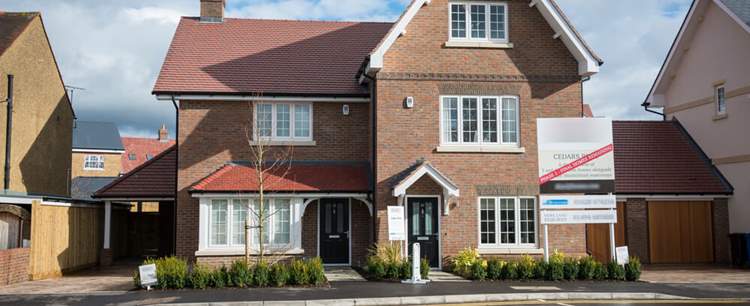UK property news inevitably focuses on the state of the housing market and the movement in average house prices. The month of May is no exception. There is also an experiment to set house prices according to local people’s earnings.
In other news stories, landlords are reminded that energy efficiency standards apply just as much to commercial properties as they do to residential dwellings.
If Prime Minister Rishi Sunak has his way, the recently abandoned Help to Buy scheme could be making a comeback to help first-time buyers.
Let’s take a closer look behind some of these headlines.
Zoopla: Are UK house prices falling in May 2023?
The House Price Index compiled by online listings website Zoopla indicates that whereas the average house price growth in prices was in double figures only a year ago, the national average had fallen back to just 3% by the beginning of May.
While growth remains positive across the country as a whole, there are pockets where prices have registered negative growth in the past 12 months. The latest areas to register such a decline include the London Boroughs of Islington and Camden.
Looking ahead, Zoopla predicts that the growth in average house prices nationally will fall to 0% by the beginning of this summer.
Where property prices are set by what local people earn
A novel scheme in South London is attempting a different approach to homeownership, according to a report by the BBC on the 2nd of May.
In place of the normal rules of the market, a housing development in Lewisham is selling apartments in its 4-storey block of just 11 dwellings only to those already living in the borough – and at a price related to the earnings of the respective buyers.
The development is the result of a partnership between a community land trust (CLT) – London CLT – Lewisham Council, and the Greater London Authority (GLA).
Lewisham residents decided issues like planning, design and sale prices. This is calculated by looking at average local income levels, which the flats will continue to track.
Buyers who have lived in or developed a strong connection with the borough for at least the past five years can buy a home at a price that can be up to 35% cheaper than equivalent properties on the open market.
Energy efficiency changes to hit non-domestic rental units
Landlord Today has issued a timely reminder to landlords that it is not only residential premises but commercial property too that needs to meet the Government’s new energy efficiency standards that were introduced on the 1st of April.
Landlords are perhaps less generally aware that the stricter Minimum Energy Efficiency Standards (MEES) mean that every let property must achieve a minimum Energy Performance Certificate (EPC) rating of E or better. That requirement extends to non-domestic, commercial property as well as residential buy to let premises. If your commercial property has a rating of either F or G, therefore, it will be classified as “sub-standard”.
Any landlord letting sub-standard commercial property runs the risk of fines and penalties running into several thousands of pounds.
Landlords who let any such sub-standard commercial property, for instance, can be fined at least £5,000 for the initial three months. If the letting extends beyond that period, the penalties can increase up to 20% of the property’s rateable value – with a fine of at least £10,000 but up to a maximum of £150,000.
Bringing sub-standard commercial properties up to the required new standard might involve improvements as relatively simple as internal and floor insulation, better lighting, heating, and ventilation, together with improved controls for heating systems.
The return of Help to Buy?
In a bid to help first-time buyers onto the housing ladder – and to counter initiatives recently published by the opposition Labour Party – Prime Minister Rishi Sunak has suggested the possible relaunch of the Help to Buy scheme.
Although the original scheme was estimated to have helped some 350,000 households to buy their own home, it was abandoned at the beginning of this year.
The possible reintroduction of the scheme has not gone down well with mortgage lenders, said What Mortgage in a posting on the 2nd of May. The article claimed that those in the business of lending for property purchase are concerned that the revival of Help to Buy would simply inflate house prices generally. They dismissed the Prime Minister’s suggestion as a political ruse designed just to win votes at election time.






